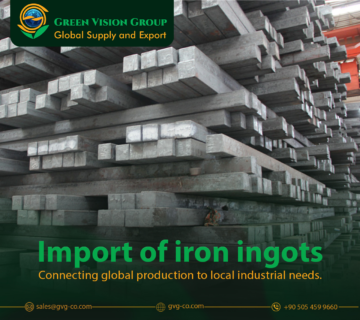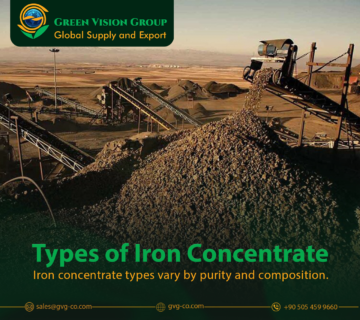Iron has played a pivotal role in the development of human civilization, and its contribution to modern society cannot be overstated. From the earliest days of human history to the present day, iron has been used to create a wide range of tools that have shaped our world. The importance of iron tools in modern human life lies in their versatility, strength, and role in various industries and technologies. This article explores the historical significance of iron tools and their ongoing relevance in today’s world.
The Role of Iron in Ancient Civilizations
The discovery of iron tools marked a significant turning point in human history. Before the advent of iron, humans primarily relied on stone, bone, and copper for making tools. However, the introduction of iron revolutionized the way humans interacted with their environment.
-
Iron Age Beginnings:
Around 1200 BCE, ancient civilizations in the Middle East and Europe began to use iron for tools and weapons. Iron was much stronger and more durable than bronze, the previous material of choice. This marked the beginning of the Iron Age, during which the use of iron tools became widespread. Early iron tools were used for agriculture, construction, and warfare, giving rise to more advanced societies. -
Advancements in Agriculture and Construction:
The development of iron tools such as plows, sickles, and hammers greatly improved agricultural productivity. The strong, sharp iron blades made it easier to cultivate land, harvest crops, and build infrastructure. These tools allowed civilizations to expand their territories, develop cities, and sustain larger populations.
Iron Tools in the Industrial Revolution
The Industrial Revolution, which began in the late 18th century, saw an explosion in the use of iron in various industries. Iron tools played a crucial role in the rapid advancements in manufacturing, transportation, and infrastructure during this period.
-
Building the Modern World:
Iron tools were essential for the construction of railways, bridges, factories, and ships, which formed the backbone of the industrialized world. Iron’s ability to withstand heavy loads and its relatively low cost compared to other materials made it an ideal choice for mass production and infrastructure development. -
Manufacturing and Mechanization:
The rise of factories and mechanized production during the Industrial Revolution was largely dependent on the development of advanced iron tools and machinery. Tools such as lathes, presses, and drills enabled mass production of goods and contributed to the mechanization of industries ranging from textiles to metalworking. Iron became the material of choice for machinery, tools, and equipment, which in turn accelerated economic growth and urbanization.
The Ongoing Importance of Iron Tools in Modern Society
In today’s world, iron tools remain indispensable in various sectors. While steel has largely replaced iron in many applications due to its increased strength and flexibility, iron continues to play a crucial role in many industries. The importance of iron tools in modern human life can be seen in the following areas:
-
Construction and Infrastructure:
Iron tools are still widely used in construction projects. While many modern tools are made of steel, iron remains a key component in construction equipment such as jackhammers, drills, and hammers. Additionally, iron is often used as a base material for reinforcing concrete, creating durable and reliable structures. -
Automotive Industry:
The automotive industry relies heavily on iron and steel tools for the manufacturing and assembly of vehicles. Iron castings are used in engine blocks, suspension systems, and various other components of automobiles. The precision and durability of iron tools are crucial in the production of these parts. -
Agriculture:
Iron tools continue to be essential in farming, particularly in the production of machinery such as tractors, plows, and harvesters. Modern agricultural equipment often uses iron alloys and steel components to ensure long-lasting performance, making it possible to grow and harvest crops on a large scale. -
Home Improvement and Daily Life:
Everyday life still depends on iron tools, from basic household tools like nails and screws to more specialized items like garden tools, hand tools, and cookware. Iron’s strength and malleability make it an ideal material for creating durable and efficient tools for use in home repairs, gardening, and cooking. -
Energy and Technology:
The energy sector also relies on iron tools, particularly in the construction of power plants, drilling rigs, and energy infrastructure. Iron is used in the creation of turbines, reactors, and pipelines, making it a critical material in the generation and distribution of energy.
Iron Tools and Environmental Considerations
While iron tools have brought many benefits to human society, the extraction and processing of iron come with environmental challenges. Mining iron ore, for example, can lead to habitat destruction, pollution, and energy consumption. However, modern advancements in sustainable mining and the recycling of iron are helping to mitigate some of these environmental impacts. By recycling iron products, the need for raw materials is reduced, and the environmental footprint of iron production is minimized.
Conclusion: A Legacy of Strength and Versatility
The importance of iron tools in modern human life cannot be overstated. From the earliest days of the Iron Age to the Industrial Revolution and the present-day world, iron has been integral to human progress. Today, iron tools continue to support agriculture, industry, construction, and daily life. Their strength, versatility, and durability make them indispensable in numerous sectors. While the world continues to advance technologically, the legacy of iron tools remains a cornerstone of modern civilization, driving innovation and shaping the future.




No Comment